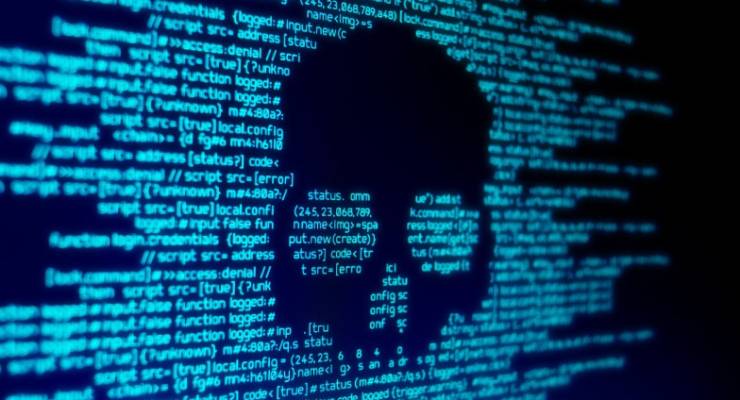
So, time for a Maoist self-criticism session.
Those of us who championed the internet as a force for freedom and democracy, as a revolutionary mechanism for disrupting the control of governments and gatekeepers, have some explaining to do. The civic utopia promised by net libertarians is a smoking ruin perched over a sewer. Why did it all go so badly wrong?
As WikiLeaks, Anonymous, internet activism and the use of social media as a key tool of protest and resistance in the Middle East dominated the headlines from 2010 to 2012, many of us tried to understand and explain the role communications technologies were playing in disruptive political events. Eight years later, however, the Arab Spring is a tragic failure, authoritarian governments have strengthened their grip, the platforms once vaunted as the mechanisms for connecting resistance and protest turned out to be preying on users instead, and social media and internet fora have become toxic cesspools of extremism and misogyny.
Now, mainstream media companies like News Corp — which is itself frequently a sewer of racism and Islamophobia — can call for the breaking up of major social media companies without criticism.
What happened? Here are some suggestions:
The bad guys are better at the internet
It was always accepted that the connective possibilities of the internet had a downside. Malicious people — terrorists, drug dealers, paedophiles, organised crime — would take advantage of it.
“The qualities that make the internet a force for unprecedented progress – its openness, its leveling effect, its reach and speed – also enable wrongdoing on an unprecedented scale,” Hillary Clinton said in 2011. Since then, it’s become clear that malicious actors are really good at using the internet, while those we hoped would use the internet to resist oppression and enhance transparency have had a much harder time of it.
The spread of fascism, racism and white supremacist ideologies has been the dominant ideological trend on the internet this decade, not the spread of democratic ideals. That is partly because the anti-authoritarian, wilfully transgressive, pop culture-savvy nature of much internet activism at the end of the 2000s proved a fertile breeding ground for fascism. There’s a direct line between some participants in Anonymous and transgressive fora like 4Chan a decade ago, the misogynist sockpuppeteers of the Gamergate controversy and the Trump-supporting, meme-posting white supremacists now to be found under every internet rock.
Like the young media producers of Islamic State who turned beheading videos into a gruesomely effective form of internet content, virality favoured malignant ideologies, not the worthy-but-dull liberal values many of us hoped.
The revolution will be monetised
Social media companies and major tech companies weren’t the benignly disinterested platforms net libertarians framed them as, but fundamentally committed to exploiting their users and manipulating them to maximise revenue.
The days of Alphabet seriously using a motto like “Don’t Be Evil” or of Facebook being regarded as a platform for organising resistance to authoritarianism now look not merely quaint, but recklessly naive. I used to argue that the internet, particularly once mobile devices arrived, was the third great wave of interconnectedness after the Reformation and the rise of trade unions. I still believe that, but there was never a danger of LutherCorp coming to dominate early modern Europe, or of trade unionism being monetised into one of the world’s biggest corporations.
What we failed to understand was how valuable the price of access to social media — personal data — would prove to a range of business models all based on manipulating us. The very platforms we thought could enable freedom in fact enabled our subjugation to relentless manipulation by advertisers selling not merely a vast array of shit products, but shit politicians as well.
The empires struck back
Faced with citizens using the internet to protest against them and expose their embarrassing secrets and corruption, governments got busy trying to stop them.
If people could connect up with each other, governments could connect up with them, whether they liked it or not. Both liberal Western authoritarian governments began devoting massive resources to surveilling their own citizens, often invoking terrorism as their justification. Those who exposed this surveillance, like Edward Snowden or Barrett Brown, were targeted with exemplary punishment. The Chinese government began to construct an entire social control apparatus based on social media. The US government recognised early on how social media could be used to influence political debates in other countries and devoted resources to it, little realising those exact tactics would be used against it by Russia.
The sheer tide of taxpayer money flowing to surveillance, and ever-expanding laws giving security agencies more power, helped turn the internet into a closely monitored public space for non-violent political activists, while malignant actors continued to operate unaffected in the shadows.
The result: the interconnectedness people like me lauded now looks less like a promise of freedom and more like being shackled to governments, corporations and extremists who each, in their own way, have nothing but contempt for us.








Crikey is committed to hosting lively discussions. Help us keep the conversation useful, interesting and welcoming. We aim to publish comments quickly in the interest of promoting robust conversation, but we’re a small team and we deploy filters to protect against legal risk. Occasionally your comment may be held up while we review, but we’re working as fast as we can to keep the conversation rolling.
The Crikey comment section is members-only content. Please subscribe to leave a comment.
The Crikey comment section is members-only content. Please login to leave a comment.